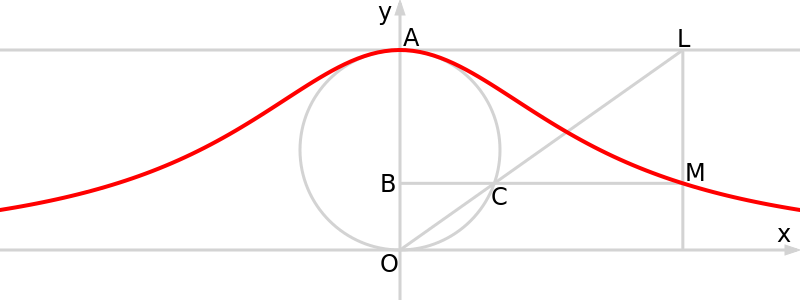Jaden Steele is a recent recruit to the AcerPlacer crew. He is studying education at Weber State University.
Throughout my life, I’ve always been intrigued by mathematics. This has caused people to question my normality. How could I enjoy something that basically everyone else hated? To answer this, we must consider what many people enjoy, and question what makes them enjoy those things. I will list some reasons that I believe people find pleasure in certain things using examples of enjoyable activities. Then I will use those same examples comparing them to why I, and many other mathematicians, enjoy math.
1. People like feeling that they are good at something.
Many people are good at a lot of things, including sports, playing music, or any number of unique talents. Because they are good at those things, they tend to enjoy doing them. It makes them feel good knowing that they have talent, and it builds their confidence and self worth. Most likely, they will continue to build on those talents for the rest of their lives.
One of the most famous researchers of the learning process is Edward Thorndike. To paraphrase, he states that any behavior that is followed by positive reinforcement will increase in likelihood. On the flip side, any behavior that is followed by some kind of punishment will decrease is likelihood. This basically means that when we do a good job at something, and someone lets us know that, we feel good about ourselves and continue to perform exceptionally well. Also, if we don’t do well at something, and others make us feel like we are poor at it, we’ll likely never want to try that thing again.
For me, my talent was always math. From the time I was two years old, I learned to count, and I would literally count myself to sleep every night. I could count as high as any normal adult could count and would normally fall asleep by the time I got into the three or four hundreds. My parents noticed my weird and unique talent and they praised me for it. They helped me to have a higher understanding of numbers that lead to me develop a love for math. As I went through school and brought home tests and quizzes all with a 100% and a smiley face drawn on the top of the page, my parents always let me know just how proud they were of me. Their encouragement only lead me to thrive in all things math.
Unfortunately, not everyone was born a math wizard, and even worse, most people believe they are terrible at math. This belief not only comes from impatient parents, teachers, and tutors who make them feel inferior, but people telling themselves that they are horrible at math, when in reality they’re not. This punishment causes people to not find any sort of joy while doing math. If you wish to start enjoying math, the first step is to stop believing that you have no math skills. As your skills improve, math will become much more enjoyable.
2. People like what other people like.
A word that I always use as a joke with my family is “sheeple.” We’ll use that word when someone does something just because they saw somebody else doing it. They act like sheep, following the actions of the shepherd. This isn’t a bad thing, it’s just how most people’s brains work. Before they do something, they like to feel that others are also doing what they are doing. It feels good to fit in, especially if what you’re doing is what the “cool kids” are doing.
Many people develop interests from the interests of other people. If one of your role models listens to a certain type of music, then you might decide that you like that music too. If your dad likes a certain sports team, you’ll probably end up liking that team as well. We like what other people also like. This principle has been coined as “joining the bandwagon.”
Math isn’t something that people generally like. It definitely doesn’t make you cool to like math. In fact, it is cool to be bad at math, which is why some people pretend like they can’t do math. The world has made fun of people who like math. They call mathematicians nerds, and people don’t want to be associated with math geeks. If you wish to enjoy math, you’re going to have to care less about being viewed as “cool” and about being part of the bandwagon.
3. People like what they believe to be important, good, or useful.
People value things in life very differently. What people value high, they also enjoy. Almost everyone cares deeply about their family, and they enjoy being with them. A great example that shows how people enjoy more valuable things would be a dinner date. If a couple went to a super nice restaurant with a fancy environment and expensive food, they would enjoy it much more than going to Burger King and ordering cheap, two dollar burgers.
Sometimes people can be misled into believing that one thing is more valuable than something nearly identical to it. The price of an object can sometimes make people believe that the more expensive thing must be more valuable – like soda, for example. A two liter thing of Coke from a plastic bottle is the same exact product as a smaller coke from a glass bottle, but the glass bottle is more expensive, and you look cooler drinking from a glass bottle, so people consider it more valuable.
Math teachers all over have always heard students ask, “When am I ever going to use this?” Although they may be right that they probably won’t use math on a daily basis, this attitude really causes the student to dislike math. The reality is that they probably won’t ever need to remember historical facts, or the chemical makeup of molecules, or how to construct Shakespearean literature on the daily either, but you hardly hear students complain about the importance of those subjects.
If you wish to begin enjoying math, stop telling yourself that it isn’t important, and maybe start thinking of ways that math skills can help your life. Practicing problem solving will help your brain to figure out ways to solve real world problems that you’ll encounter later in life.
4. People like what they understand.
Perhaps the biggest factor on why people enjoy or don’t enjoy something is the level of understanding they have of that particular thing. This is true in sports, music, art, or any aspect of culture. An athlete might look at someone who enjoys comics and question why in the world they enjoy such a weird thing, and the comic nerd might ask the same question about the athlete. They understand what they enjoy, which is why they enjoy it so much. They don’t however understand other people’s interests.
The more understanding I gain of mathematics, the more I enjoy doing it. I promise as you begin to understand math, you’ll start to enjoy it as well.
These points will not only help you enjoy math, but they can help you to enjoy any new thing that you didn’t previously enjoy. Try to understand the topic, find reasons why it is important or good, this will help you relate to others who enjoy that topic, and finally, once you’ve mastered that new topic, you’ll feel really good about it.










